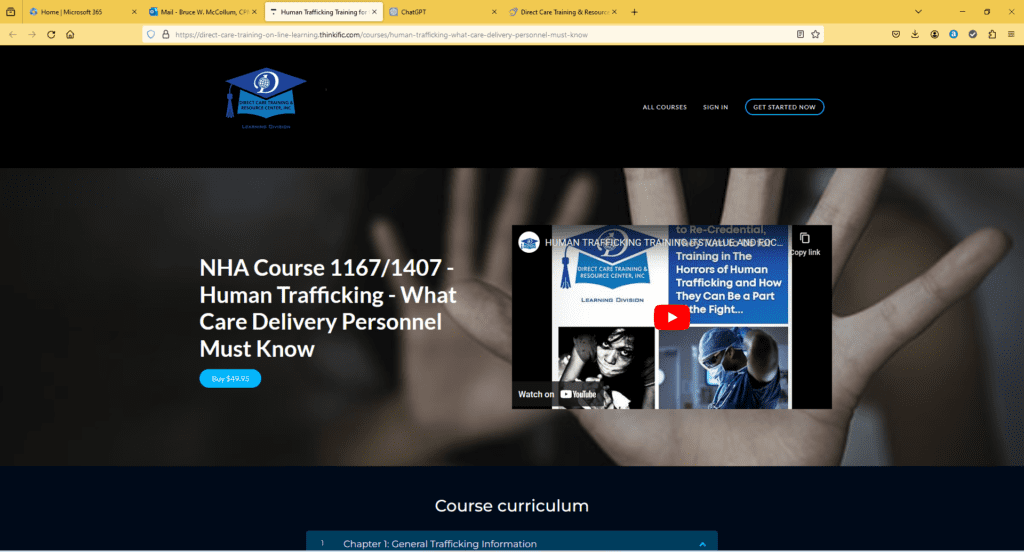Human trafficking, a grave and pervasive issue, affects millions worldwide. It manifests in various forms, including labor exploitation and sex trafficking, with alarming statistics underscoring its global impact. In this context, the role of residential care administrators is crucial. They often serve as the first point of contact for potential victims, placing them in a unique position to make a significant difference. This blog post aims to highlight the importance of specialized training in human trafficking for these administrators, with a particular emphasis on the innovative product developed by Direct Care Training & Resource Center Inc.
To appreciate the importance of training, one must first understand the extent of human trafficking. It’s a multifaceted issue that transcends borders, impacting individuals regardless of age, gender, or socioeconomic status. The ability to identify victims is often hindered by the hidden nature of these crimes, making training in victim identification not just beneficial but essential.
Residential care administrators are often on the front lines in the fight against human trafficking. Their ability to recognize the signs of trafficking can lead to timely and potentially life-saving interventions. However, without proper training, these signs can be easily overlooked or misinterpreted, leading to tragic missed opportunities for helping victims.
Training programs tailored for residential care administrators are vital. These programs should cover the various forms of trafficking, indicators of victimization, and protocols for reporting and assisting victims. Such training enhances administrators’ confidence, decision-making skills, and ability to collaborate effectively with law enforcement and support organizations.
The fight against human trafficking is a collective responsibility. Residential care administrators play a pivotal role, and equipping them with the right training is crucial. The product offered by Direct Care Training & Resource Center, Inc. represents a significant step forward in this endeavor. By investing in such training programs, we can create a safer and more supportive environment for victims of human trafficking, contributing to the broader effort to combat this global issue.




